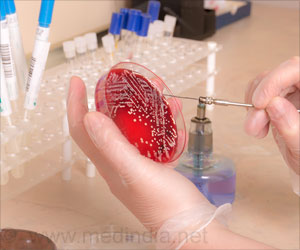
‘Indian Institute of Technology (IIT) Guwahati has developed a low-cost, hand-held device that helps detect bacteria rapidly, bringing portable bacterial detection kits closer to reality.’
Tweet it Now
The ready-to-use diagnostic tool could facilitate rapid detection and diagnosis at the point of care. The researchers believe that besides being useful in a healthcare set up, the device could aid anti-bioterrorism measures and environmental monitoring applications.
Their work has been patented as well as published in the July 2019 issue of the Journal of Materials Chemistry A of the Royal Society of Chemistry.
The Organic Field Effect Transistor (OFET)-based bacterial diagnostic device has been shown to have the ability to distinguish between Gram positive and Gram negative types. The sensor detects the charges on the cell walls of bacteria.
At present, the detection of bacteria in body fluids is done in laboratories. The cells that are derived from the patient are initially cultured or grown so that enough of the bacterial cells are available for microbiological analysis.
Advertisement
"While newly developed techniques such as real time qPCR can detect bacteria faster than conventional assay-based methods, they are restricted by the need for expensive apparatuses and trained personnel.
Advertisement
The sensor is an electronic device that works on the principle that charges in the vicinity of the channels of certain semi-conductors can induce a current in them. Thus, the charges on the surface of the bacterium, induces a current in the sensor, which is registered and read.
The devices developed by the team consists of a unique and hybrid tri-layer dielectric system built on simple glass and flexible PET (a kind of plastic) substrates, and can operate at ultra-low operating voltages.
"Not only have we shown the sensing capabilities of this portable OFET device, but we have also shown the mechanism by which sensing occurs and elucidated the role of bacterial wall in distinguishing various bacterial types," Iyer added.
The current device is particularly useful for the detection of bacteria primarily for water-borne diseases. These sensors will also be useful in instantaneous detection of time-critical illnesses such as meningitis.
Source-IANS













